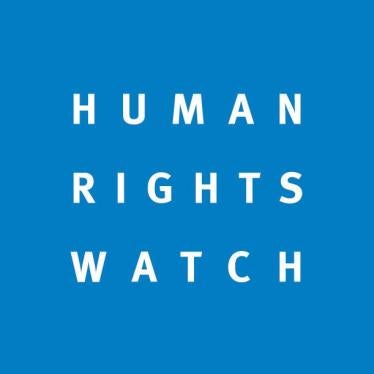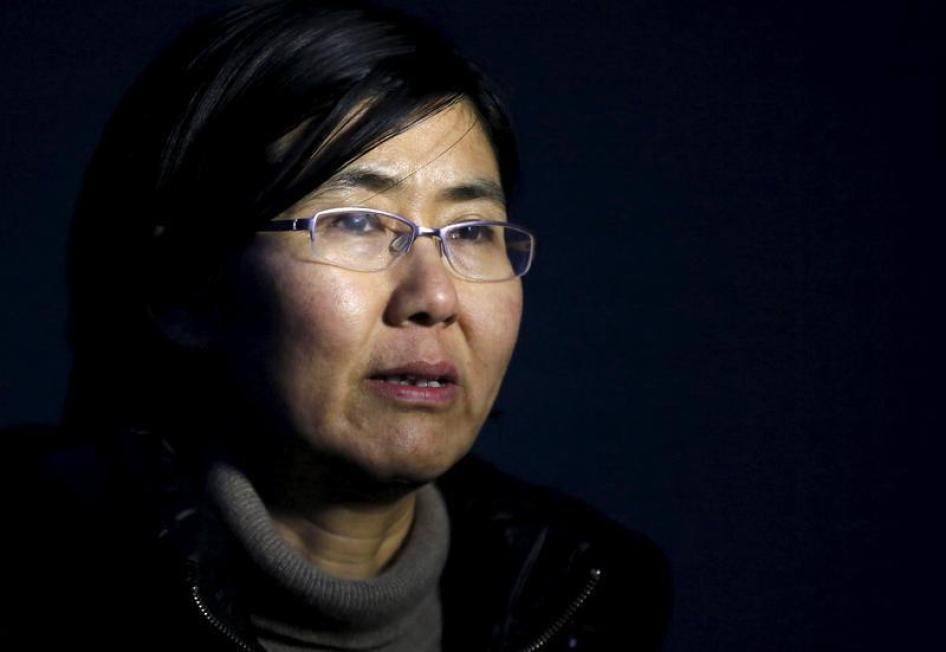|
Commentary
China’s campaign of intimidation against human-rights lawyers has to be stopped
Published in:
Quartz
When Beijing last rounded up dozens of human-rights lawyers in 2011, it was clearly scared of a “Jasmine Revolution” like the protests then rocking the Middle East. But when Chinese police detained more than a hundred human-rights lawyers across the country over just a few days this month, there was no pretense of anything other than bare-knuckled crushing of the courageous rule of law advocates who have helped build China’s civil society over the past decade.
On July 10, Beijing police first took into custody lawyer Wang Yu, and then the director and staff of Wang’s employer, Fengrui Law Firm. Within the next 24 hours, what originally looked like a targeted attack on one law firm turned out to be a coordinated hunt for human-rights lawyers across nineteen provinces [Chinese]. While most have now been released, seven have been criminally detained, while the fate of at least fifteen remain unclear. The message that defending basic rights can cost you your freedom went out loud and clear across the country.
China’s state broadcaster Xinhua immediately published an article [Chinese] justifying the police crackdown on “a well-organized criminal gang” that, in the name of “defending rights, justice and charity,” had “seriously disturbed public order.” Lawyers had “hyped up” “public pressure on the government” by mobilizing activists and dissatisfied petitioners in order to “gain fame and money.” Leaving aside how Xinhua could draw such conclusions within hours of the arrests and well ahead of any judicial proceedings, the article neither explained how exactly the lawyers disturbed public order nor offered any other credible evidence of wrongdoing.
Why is this happening now, as President Xi Jinping prepares for state visits to key capitals, including Washington, DC, as leaders routinely proclaim commitment to the “rule of law,” and at a time when Beijing faces no serious threats?
Since 2003, China has seen the rise of a “rights defense”—weiquan—movement, in which all kinds of popular and often spontaneous advocacy by netizens, activists, lawyers, and online commentators responding to injustices could snowball into pressure on the government. While the authorities have grown less tolerant of this movement, there was always an invisible “red line” within which a certain level of dissent was tolerated.
But things changed when President Xi came to power two years ago. Under his leadership, authorities started to target some of the most innovative activists working within this red line. China imprisoned legal scholar Xu Zhiyong, whose long list of achievements included founding the Open Constitution Initiative and the New Citizens Movement. Authorities detained lawyer Pu Zhiqiang, whose social media savviness helped to abolish arbitrary detention camps. The government harassed the anti-discrimination civic group Yirenping, which pioneered public interests lawsuits. Officials arrested activist Wu Gan, whose unabashed mockery of the authorities drew him numerous fans. Most recently, Beijing targeted the Fengrui Law Firm, which has provided employment and key cases for outspoken lawyers.
Meanwhile, authorities have also taken aim at the Internet and the press, emphasizing the importance of “correct” ideology and supremacy of the Communist Party among university lecturers, Party members, and journalists. And they have introduced a raft of national security laws that cast dissent as threats to the state, which have met little vocal domestic opposition as there are few left to criticize them.
Compare how, in 2009, Wu Gan drew online attention to the case of Deng Yujiao, a hotel worker who killed a government official in self-defense against attempted rape. The efforts of Wu and others—including Pu Zhiqiang, whose lawyers in the firm provided legal aid–challenged the police’s original claims of manslaughter and led to her release. Fast forward six years later, and Wu’s efforts to question an incident of a police shooting in Heilongjiang Province have instead led not only to his own arrest, but also to the detention of other lawyers.
The government’s current campaign is not about a single law firm or a handful of lawyers. It is about the discrediting of the very modus operandi of the rights defense movement. Collectively these trailblazing individuals and organizations have done the coal-face work, at great personal risk, to try making human rights a reality for ordinary people in China. With this massive lawyers sweep, we can bid farewell to one of the only vehicles to provide real relief to victims of human rights violations in China.
When Xi visits the US in September, he should not leave without an unequivocal public message from Obama urging an end to the crackdown. The fate of this movement intertwines with that of China’s, and consequently, with that of US-China relations.
If Washington and other capitals fail to impose at least a reputational price on Beijing, it will certainly be seen in China as a green light to further tighten the stranglehold on civil society.
Your tax deductible gift can help stop human rights violations and save lives around the world.
Region / Country
Most Viewed
-
November 25, 2019
A Dirty Investment

-
June 3, 2025
“They’re Ruining People’s Lives”

-
January 25, 2024
“We’re Dying Here”

-
February 19, 2018
“All We Want is Equality”

-
December 21, 2023
Meta’s Broken Promises





